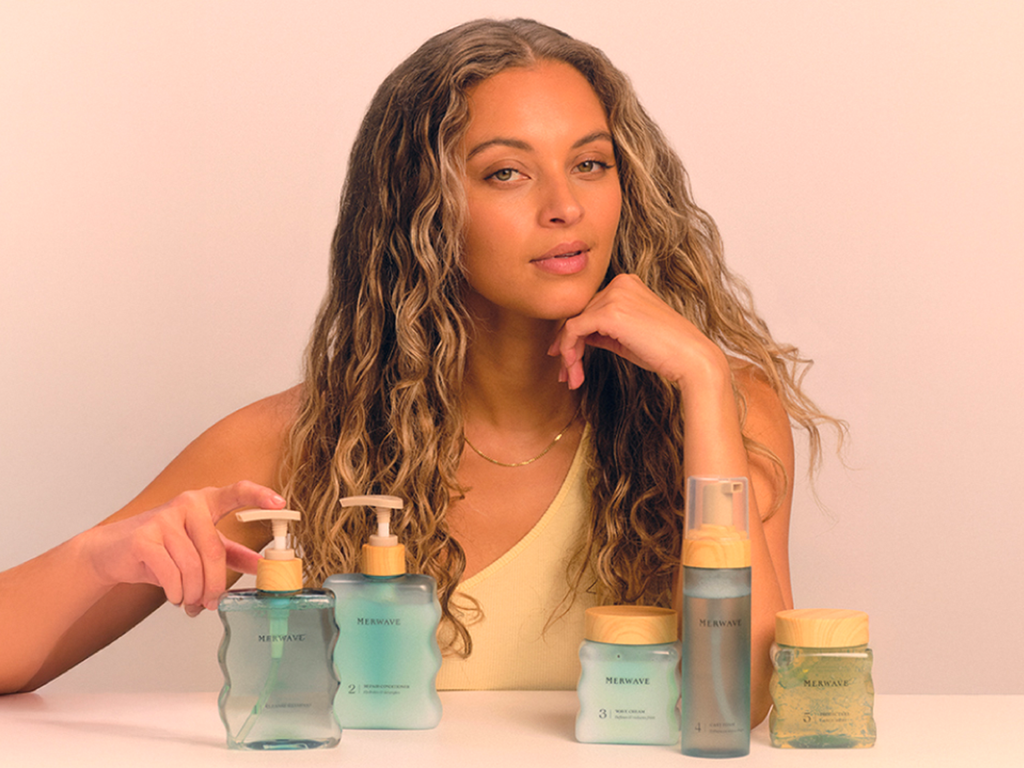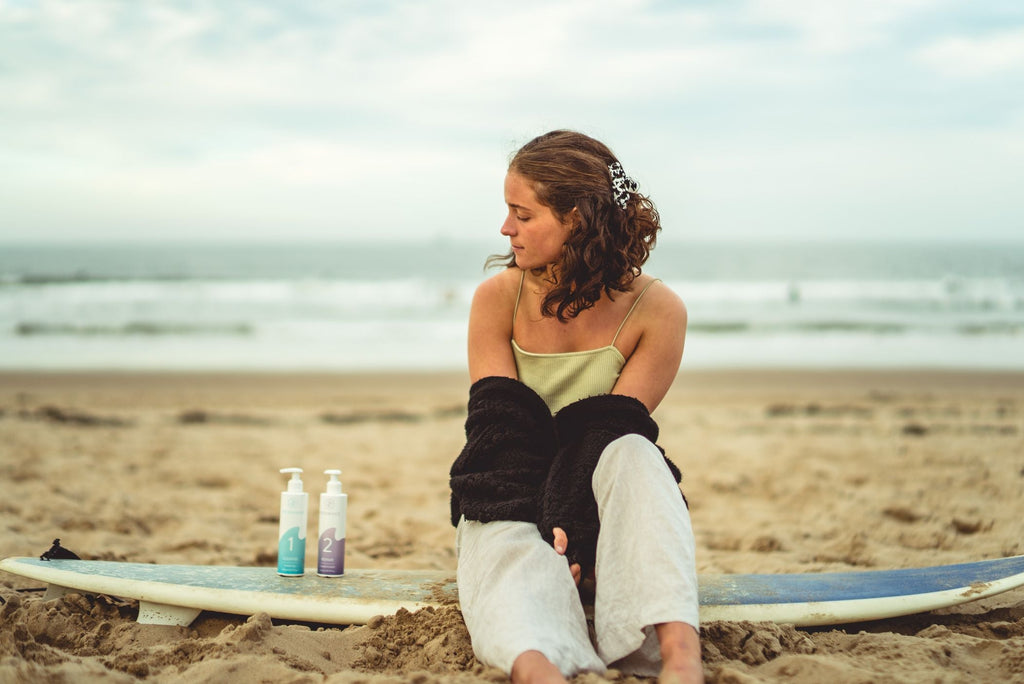Published 14th May, 2021
Do I Have Wavy Hair?
It’s a common story that people with wavy hair don’t recognise their natural pattern. Which can make hair care very frustrating.
As a result, many people settle for straightening their natural waves. They struggle to find a haircare routine that is healthy and easy to maintain.
If your hair feels impossible to handle it’s time to take a step back and learn about your locks. You’ll probably be very surprised by what you discover.
Chances are, you’ve probably already experienced signs of wavy hair, you might just not know it yet!
There are many different curl types (waves included) so by paying attention to your hair (such as its pattern, texture and the way it dries) you can unleash your natural waves and get your hair looking and feeling its best!
Not sure whether you have wavy hair? By the end of this article you'll have establish your hair type.
what is my hair type?
You’re going to struggle to find wavy hair products or establish a good hair care routine if you don’t know your hair type.
The Andre Walker hair typing system is widely used in the natural hair community as a way of identifying different curl types including straight hair, natural waves and kinks.
Wavy hair generally falls under type 2. Where the pattern has a slight curve or ‘S’ shape when dry. However, this is a spectrum and some wavy / curly hair is tighter or looser than others - recognised on a range of A-C.
Types Of Wavy Hair
● 2A - Fine hair with a loose wave or tousled look.
● 2B - Flatter at the crown but has an ‘S’ shaped waves that can get frizzy.
● 2C -Thicker hair with a defined‘S’ pattern or deep wave.
Finding wavy curly hair that resembles yours is a great way of understanding curl types and how to get wavy hair that’s happy and healthy.
It’s important to note that if your hair is damaged (for example through the use of hot tools) your natural waves may be harder to spot. It’s a good idea to let your hair rest so you can see how it acts when it isn’t being manipulated. You can check out our latest blog on how to survive the transition period including how to manage your emerging natural waves!
HOW TO TEST IF YOUR HAIR IS WAVY
Did you know that you can test for wavy hair?
Using the plopping method, you can unleash your natural waves and see your natural hair pattern in all its glory. We have a similar application at Merwave using our 5 step system.
Unsure if you have wavy hair? Give the following experiment a go and see if your natural waves appear:
1. Wash your hair with Cleanse Shampoo concentrating on your scalp - this is best done by leaning over in the shower.
2. Apply Repair Conditioner to the lengths of your hair and comb through with a wide-tooth comb or your fingers.
3. Rinse the conditioner.
4. Scrunch your hair in your hands - this is when your natural waves will start to appear.
5. Apply a gel or mousse with your hair still flipped over then gently plop it into a t-shirt and tie securely.
6. Plop for around 5 to 10 minutes.
7. Gently remove the t-shirt and let your hair air dry or use a diffuser but do not touch your wavy hair any more than necessary.
8. When your hair is dry scrunch out the crunch and take a look at the end result!
WHAT ARE THE COMMON SIGNS OF NATURAL WAVES?
Want to know how to get wavy hair?
Well, you could already have it! Here are 5 top signs that you have hidden natural waves.
1. Your Hair Is Wavy When Wet Yet Dries Straight
When your hair is wet it usually reveals your natural pattern.
So if you spot kinks, this is the sign that you don't have straight hair. Instead of brushing them out and encouraging your natural waves to drop, try not to touch your hair while it’s drying and see how it turns out.
If it does appear wavy curly, the key is to find the right products and techniques to embrace your waves after your hair has been washed. That way you won’t struggle with unruly frizz.
2. You Experience Frizz, Especially During Humidity
Humidity and the weather can have a big effect on wavy hair.
If yours frizzes up whenever you leave the house, you may have some waves trying to get free!
Instead of tying your hair back in an attempt to keep it neat, add moisture back into your hair so your waves can come through. The frizz will turn into definition.
We’ve got an article giving tips on how to deal with frizzy hair and how the weather can affect your hair.
3. Your Hair Looks Puffy Or Flicks Out
Hair that looks puffy or flicks out at the end isa common sign of waves.
It’s very easy for natural waves to be hidden or camouflaged under poofiness - usually because people brush out their waves instead of defining them.
If your hair naturally wants to flick out, this could be waves trying to form.
4. Your Hair Is Unmanageable
Have you tried loads of different conditioning treatments and still find your hair impossible to tame? Broken hairbrushes or combs just trying to brush your hair? Take you ages to detangle, leading to your hair snapping?
It could be that your hair is extremely damaged or it could be that you have wavy hair.
5. Blow Drying Yet Still Frizzy
Sometimes, even using heat can’t stop some curl types from peeking through.
Ever noticed that some sections refuse to straighten? Those kinks just appear and there's no amount of blow drying or straightening that will make them disappear.
That's wavy hair.
Want To Awaken Your Natural Waves?
The Merwave range is built for wavy hair. Simple, natural wavy hair products that unleash your natural waves after a few washes.
Click here to discover the full range.



